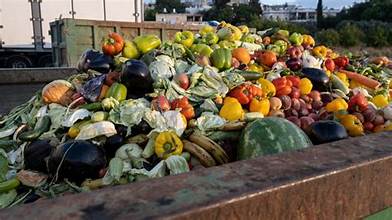Food is at the heart of South African life. It brings families together around pap and stew, unites friends at a braai, and celebrates the country’s diversity. Yet this same food culture is threatened by an uncomfortable truth, South Africa is wasting millions of tonnes of food every year while millions go hungry. It is against this backdrop that the country is turning the spotlight on one of its most urgent challenges: food waste. On 29 September 2025, the Consumer Goods Council of South Africa (CGCSA) together with the Waste & Resources Action Programme (WRAP) will host a Food Safety and Sustainability Seminar at OR Tambo to mark the United Nations’ International Day of Awareness of Food Loss and Waste. The gathering will bring together government officials, academics, businesses and civil society to reflect on the scale of the crisis and the opportunities for action.
The scale is shocking. Around 10 million tonnes of food, a full third of what the country produces annually, is wasted. According to the Mbalo Brief, the official Statistics South Africa digest drawing on the 2022 Census results released in 2023, this is equal to one third of the 31 million tonnes produced every year. The financial loss is about R60 to R61.5 billion annually, roughly 2% of the nation’s GDP. At the same time, the Census confirmed a rise in food insecurity, with nearly one in five households reporting hunger. This is the painful paradox: while food is wasted, people are going without.
The waste happens all along the supply chain. On farms, poor storage, limited cold facilities, and bad roads mean crops spoil before reaching shelves. Retailers often discard food nearing its sell-by date or reject fruit and vegetables that don’t meet cosmetic standards. In households, poor planning and leftovers left too long in the fridge add to the pile. Research shows one in five fruits and vegetables, still perfectly edible, never make it to the plate.
The environmental costs are just as dire. Once dumped, food rots and releases methane, a gas even more harmful than carbon dioxide. Added to this is the waste of water, fertiliser, electricity and labour that went into producing the food in the first place.
But there are reasons for hope. Organisations such as SA Harvest and FoodForwardSA are rescuing surplus food and redistributing millions of meals every year. The Consumer Goods Council of South Africa’s Food Loss and Waste Initiative, now in its sixth year, has brought together retailers, manufacturers and NGOs to reduce waste. Campaigns like OneFarm Share are changing consumer behaviour by promoting “misfit” fruit and vegetables. Since its launch, the programme has moved more than 21,000 tonnes of produce, equal to 86 million meals.
The seminar at OR Tambo will shine a brighter light on these efforts. Speakers include Gauteng Agriculture MEC Vuyiswa Ramokgopa, Nestlé executive Nicole Roos, and food safety expert Professor Lise Korsten of the University of Pretoria. CGCSA programme manager Linda Drummond will highlight the progress of the Food Loss and Waste Initiative, while CEO Zinhle Tyikwe will close proceedings. A panel discussion led by CGCSA executive Matlou Setati will bring together voices from government, academia and industry to chart the way forward.
The event will also remind South Africans that this is not just an industry issue, it is everyone’s responsibility. Stats SA’s findings show that households contribute a significant share of waste. That means small daily changes at home can have a major impact. Planning meals before shopping, storing food correctly, eating leftovers, buying “ugly” produce, and donating surplus to local kitchens are practical steps that make a difference.
Globally, the United Nations has called on all countries to halve food waste by 2030. For South Africa, achieving this goal would mean millions fewer going hungry, reduced greenhouse emissions, stronger resilience to climate shocks, and billions saved.
The message is simple and urgent. Food has always been a symbol of togetherness in South Africa. To protect that tradition, we need to treat every meal as precious. Stop wasting, start saving – because every morsel matters.









